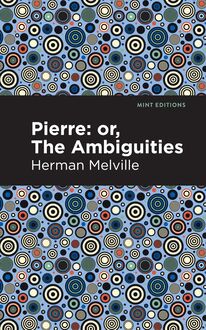-
 Univers
Univers
-
 Ebooks
Ebooks
-
 Livres audio
Livres audio
-
 Presse
Presse
-
 Podcasts
Podcasts
-
 BD
BD
-
 Documents
Documents
-
- Cours
- Révisions
- Ressources pédagogiques
- Sciences de l’éducation
- Manuels scolaires
- Langues
- Travaux de classe
- Annales de BEP
- Etudes supérieures
- Maternelle et primaire
- Fiches de lecture
- Orientation scolaire
- Méthodologie
- Corrigés de devoir
- Annales d’examens et concours
- Annales du bac
- Annales du brevet
- Rapports de stage
La lecture à portée de main
Vous pourrez modifier la taille du texte de cet ouvrage
Découvre YouScribe en t'inscrivant gratuitement
Je m'inscrisDécouvre YouScribe en t'inscrivant gratuitement
Je m'inscrisEn savoir plus
Vous pourrez modifier la taille du texte de cet ouvrage
En savoir plus

Description
Whom God Hath Sundered (1910-1913) is a trilogy by Oliver Onions. Published toward the beginning of Onions’ career as a leading novelist and short story writer specializing in genre fiction, Whom God Hath Sundered is a largely unknown trilogy of crime novels deemed a forgotten classic by British literary critic Martin Seymour-Smith. From the beginning, In Accordance With the Evidence—the first installment of the trilogy—is as much the story of James Jeffries as it is of Archie Merridew. Unlike Jeffries, who was “atrociously poor…in those days,” Merridew was a young man whose every opportunity seemed to have been ordained at birth: “His folks lived at Guildford; his father paid his rent for him, thirty-eight pounds a year; and his pleasant quarters under the roof had everything that mine hadn't.” As their story unfolds, Jeffries falls for the beautiful Evie Soames, but jealousy and competition with Archie threaten to derail his every move. Unhappy with his low-paying work, luckless in love, Jeffries begins to resent Archie with a near-violent passion. When Archie becomes engaged to Evie, Jeffries is left with no choice. As he looks back on his life from the distance of a dozen or more years, he recounts his path from hardship to murder, laying bare the psychological traumas that led him to commit his crime. In parts two and three, The Debit Account and The Story of Louie, we see the consequences of his heinous act unfold. With a beautifully designed cover and professionally typeset manuscript, this edition of Oliver Onions’ Whom God Hath Sundered is a classic of British literature reimagined for modern readers.
Sujets
Informations
| Publié par | Mint Editions |
| Date de parution | 28 mai 2021 |
| Nombre de lectures | 0 |
| EAN13 | 9781513287898 |
| Langue | English |
| Poids de l'ouvrage | 3 Mo |
Informations légales : prix de location à la page 0,0600€. Cette information est donnée uniquement à titre indicatif conformément à la législation en vigueur.
Extrait
Whom God Hath Sundered
Oliver Onions
Whom God Hath Sundered was first published in 1910.
This edition published by Mint Editions 2021.
ISBN 9781513282879 | E-ISBN 9781513287898
Published by Mint Editions®
minteditionbooks.com
Publishing Director: Jennifer Newens
Design & Production: Rachel Lopez Metzger
Project Manager: Micaela Clark
Typesetting: Westchester Publishing Services
C ONTENTS I N A CCORDANCE WITH THE E VIDENCE P ART I . H OLBORN P ART II . W OBURN P LACE P ART III . T HE G ARRET T HE D EBIT A CCOUNT P ART I . T HE C OBDEN C ORNER P ART II . V ERANDAH C OTTAGE P ART III . W ELL W ALK P ART IV . I DDESLEIGH G ATE E NVOI T HE S TORY OF L OUIE P ROLOGUE P ART I . R AINHAM P ARVA P ART II . S UTHERLAND P LACE P ART III . M ORTLAKE R OAD P ART IV . P ILLAR T O P OST P ART V . T HE C ONSOLIDATION E NVOI
IN ACCORDANCE WITH THE EVIDENCE
PART I
HOLBORN
I
It seems strangely like old times to me to be making these jottings in Pitman’s shorthand. I was surprised to find I remembered as much of it as I do, for I dropped it suddenly when Archie Merridew died, and Archie’s clear, high-pitched voice was the last that ever dictated to me for speed, while I myself have not dictated since Archie took down his last message from my reading. That will be—say a dozen years or more ago next August. It may be a little more, or a little less. Nor, since I do not keep it as an anniversary, does the day of the month matter.
Either in my rooms or his, we had a good deal of this sort of practise together about that time, young Archie and I—reading aloud, taking down and transcribing. I am wrong in speaking of my “rooms” though; I had only one, a third-floor bedroom near the very noisiest corner of King’s Cross. It was just opposite one of these running electric advertisements that changed from green to red and from red to green three times every minute; you know them; there are plenty of them now, but they were new then. The street was narrow; this horrible thing was at a rounded corner not more than five and twenty yards away; and even when my lamp was lighted it still tinged my ceiling and the upper part of the wall above my bed, red and green, red and green—for I had only a little muslin half-curtain and no blind, and if I wanted to read in bed I had either to turn my lamp out until I had undressed or else to undress in a corner by the window side of the room, because of being overlooked from across the way. I don’t think there were any other lodgers in the house. It was a “pub,” the “Coburg,” but I could get on to the staircase without going through the bars on the ground floor, and always did so. The rather sour smell of these lower parts of my abode reached me up my three flights of stairs, but I had got used to that. It was the noise that was the worst (except, of course, that red and green fiend of an advertisement)—the noise that greeted me when I woke of a morning, awaited me when I came back from Rixon Tebb & Masters’ at night, and often became maddening when, at half-past twelve, they clashed to the iron gates of the public-house and turned the topers out into the street, to fraternise or quarrel for half-an-hour or more beneath my window.
But we worked more in Archie Merridew’s rooms than in mine. “Rooms” is correct here. He had the whole top floor of a house near the Foundling Hospital, a pretty house with a fan-lighted ivy-green door, early Georgian, a brightly twinkling brass knocker and bellpulls, and a white-washed area inside the railings to make the basement lighter. His folks lived at Guildford; his father paid his rent for him, thirty-eight pounds a year; and his pleasant quarters under the roof had everything that mine hadn’t—he could sit outside on the coped leads when the weather was hot, draw up cosily to a fireplace shaped something like a Queen Anne teapot when it was cold, and the ceiling, truncated along one side, didn’t begin to turn red and green the moment the twilight came.
It gives me a shiver to think how atrociously poor I was in those days. More and more of that too comes back with the half-forgotten shorthand. I don’t mean that I’ve ever forgotten that I used to be poor; it’s the depth and degradation I mean and that—this will seem odd to you presently, as it seems suddenly odd to me as I write it—that memory is still more horrible to me than anything else I have ever known. My having got rich since doesn’t wipe it out. If I were to become as rich as Rockefeller I should never forget the rages of envy, black and deep and bitter, that used sometimes to take me when I thought of Archie Merridew’s circumstances and my own.
I have got riches as I have got everything else— everything —I ever wanted, by attention to detail. You’ll probably agree with me by-and-by that by “attention to detail” I mean rather more than most men do when they give this advice to young men about to start in life. I remember they used to give us, as it were, the empty form and shell of this maxim at the Business College, the place in Holborn Archie and I attended; but you’ve got to have been down into the pit and come back again before you realise the terrible force there is in these truisms. And no less in doing things than undoing them afterwards (when that has been necessary) have I planned to the very last minuti æ . If I have never seemed a particularly busy man, that has been because I have always disliked being seen in the act of doing a thing. And where I have passed my trail is obliterated.
Archie Merridew and I were only half contemporaries. He was younger than I by a good seven years—was, as a matter of fact, only twenty-three when he died. And in nearly everything else we were as sharply contrasted as we were in our fortunes. Indeed, we were much more so, for while I miserably coveted that thirty-eight pound upper floor of his near the Foundling Hospital, my faith in myself and my ambition would have helped me over that. Physically, we were as different as we could be. My almost gigantic size made me, in my cramped red and green lighted apartment, an enormously overgrown squirrel in the smallest of cages; but to Archie’s rather dandified little dapperness his series of roof chambers was spacious as a palace. Mentally we diverged even more. I was taciturn, he lively as one of the crickets that used to chirp behind his little Queen Anne teapot of a fireplace. And as for luck—well, if luck ever so much as nodded to me in those days, it seemed to change its mind and to pass by on the other side, while he seemed to pull things off the more easily the more recklessly he blundered.
And he had his people at Guildford, while I had never a soul in the world.
I don’t know how we contrived to hit it off as well as, on the whole, we did. Perhaps that too was part of his lucky disposition—he could get along even with me. He always spread some sort of a weak charm about him, and this charm always disarmed me even, when to all intents and purposes he was merely rubbing in my horrible poverty. He would tell me, as if I wasn’t already eating my heart out about it, that it was about time I made an effort—that he wasn’t going to remain in those stuffy diggings of his all his days—and that if he had only half my brains he’d be up somewhere pretty high in a very short time (as he probably would had he lived)—all this, you understand, for my good, the cigarette gummed to his prettily shaped upper lip wagging as he talked, and with the best intentions in the world. He was quite devoted to me; would tell me how he had told other people about those extraordinary brains of mine; and he never dreamed (though it was not long before I began to) that our respective ages were even then making of our companionship a hopeless thing. A lad of seventeen may attach himself for a time to a man whose years number twenty-four of bitterness and exclusion, but they will part company again before the one is twenty-three and the other thirty.
I was only an evening student at the Business College, while Archie spent his days there. Often enough he did not turn up in the evening at all; indeed, he only began to do so with unfailing regularity some time after Evie Soames had put her name down for the social evening course of lectures on Business Method. Evie Soames was a day student too, though only on three days in the week, Mondays, Wednesdays, and Fridays; and the lectures on Method were given in the evening because they were specially addressed to those who, like myself, were employed during the day, and deemed to be ripe for the more advanced instruction. I don’t think Archie was very much wiser for Weston’s (our lecturer) efforts, but he was genuinely grateful to me for my explanations of them afterwards, and would pat me on the shoulder affectionately, and tell me he couldn’t understand why everybody else didn’t see what a rare good sort I was. That was his backhanded idea of a compliment.
I think, in those early days of mine, I hated pretty well everything and everybody; and I cannot better show you how little I found to love than by giving you, before I go on with my tale, an account of my day at that period of my life—any day taken at random will do.
I had to be at Rixon Tebb & Masters’ by nine, why, I don’t know, since nobody else of any account whatever turned up much before half-past ten. But eight of us had to be there by nine o’clock, and I will tell you how our eight had been got together.
You know—or don’t you know?—that there are firms that contract for the supply of “office labour” of all grades, from the messenger boy to the beginning of the confidential clerks; holusbolus, in the lump, as much of it or as little as you please. You pay, if you are an employer, a certain number of hundreds a year, and the agency does the rest. One down, t’other up; sack one man, and telephone for another. The agency’s supply, at the maximum of a pound a week, is practically unlimited, and the firm es
-
 Univers
Univers
-
 Ebooks
Ebooks
-
 Livres audio
Livres audio
-
 Presse
Presse
-
 Podcasts
Podcasts
-
 BD
BD
-
 Documents
Documents
-
Jeunesse
-
Littérature
-
Ressources professionnelles
-
Santé et bien-être
-
Savoirs
-
Education
-
Loisirs et hobbies
-
Art, musique et cinéma
-
Actualité et débat de société
-
Jeunesse
-
Littérature
-
Ressources professionnelles
-
Santé et bien-être
-
Savoirs
-
Education
-
Loisirs et hobbies
-
Art, musique et cinéma
-
Actualité et débat de société
-
Actualités
-
Lifestyle
-
Presse jeunesse
-
Presse professionnelle
-
Pratique
-
Presse sportive
-
Presse internationale
-
Culture & Médias
-
Action et Aventures
-
Science-fiction et Fantasy
-
Société
-
Jeunesse
-
Littérature
-
Ressources professionnelles
-
Santé et bien-être
-
Savoirs
-
Education
-
Loisirs et hobbies
-
Art, musique et cinéma
-
Actualité et débat de société
- Cours
- Révisions
- Ressources pédagogiques
- Sciences de l’éducation
- Manuels scolaires
- Langues
- Travaux de classe
- Annales de BEP
- Etudes supérieures
- Maternelle et primaire
- Fiches de lecture
- Orientation scolaire
- Méthodologie
- Corrigés de devoir
- Annales d’examens et concours
- Annales du bac
- Annales du brevet
- Rapports de stage














